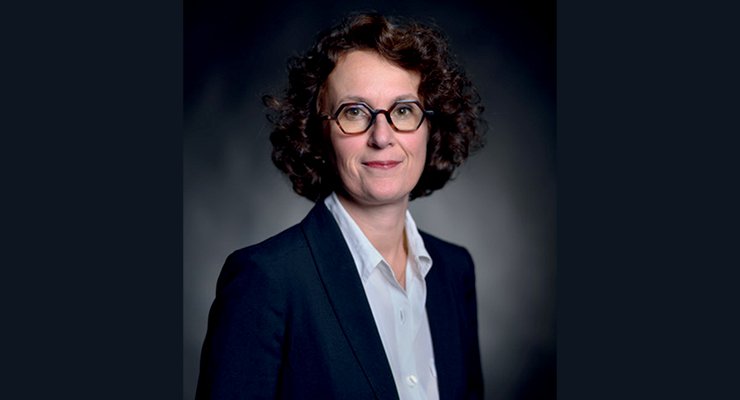Specialty – Data Handling and Reliability for Industry (DFI)
UTC engineers who qualify from the specialist option "Data handling and Reliability for Industry" (DFI) programme will have acquired the knowledge necessary to exploit massive data (products/processes), for the understanding and resolution of problems arising from industrial systems in design and production activities. Within the framework of a robust and sustainable engineering approach, they are capable of developing robust models (comparison of tests/numerical calculations) based on data, of carrying out operating safety studies (Preliminary Risk Analysis, FMEA, Fault Trees, etc.) and of optimizing the performance of a product or production process (6 sigma, Statistical Process Control, predictive maintenance) by exploiting all the data available.
Course contents
The basic training in mechanical engineering is complemented by courses in the fields of data analysis, operational safety, maintenance and the management of intelligent industrial processes.
Within the framework of the DFI course, students will address the following topics
- Control and supervision of intelligent production processes;
- Real and numerical experimental designs, test/calculation confrontation;
- Robust engineering;
- Safety of systems, industrial reliability;
- Product-process data analysis (data-analysis);
- Predictive maintenance, PHM.
In addition to these courses, students are offered projects within the framework of technological platforms and industrial simulation tools. This allows students in the DFI specialist programme to adapt to a real-life situations, through practical work, “serious games” and real company projects.
The courses offered are also available in an apprenticeship format and offer the possibility of a sandwich course, particularly in the final year.
The academic teaching team
This team comprises lecturer-cum—research scientists who develop research activities in the fields of robust engineering (experimental designs, control and supervision of intelligent production processes) and operational safety (reliability, predictive maintenance, etc.).
This research is conducted in close collaboration with industrialists in various fields (automotive, aeronautics, etc.). In addition, an external team of specialists from the industrial and economic worlds are involved in teaching practical approaches.
Equipment
DFI students have access to the "Agile Manufacturing System" technological platform (conveyor belt with robotic detection cell) and industrial process simulators to put into practice the concepts developed during the courses.
In addition, the software used is mainly that used in industrial environments: for industrial reliability and maintenance (Reliasoft), for robust engineering and design of experiments (Minitab) and for the supervision and control of intelligent industrial processes (Python, R).
Placements/internships and industrials relations
The end-of-study project is carried out in an industrial environment – lasting 6 months – in the automobile sector (Renault, PSA, Toyota, Valeo, PO, Faurecia, Saint Gobain), in aeronautics (Safran, Stelia, Airbus Helicopters, Rolls Royce, MBDA, Thales), cosmetics (Colgate Palmolive, Chanel, L'Oréal), energy (EDF, Total, Technip), transport (RATP, SNCF, Air France) and other sectors (Decathlon, Cartier… ).
International
DFI students can spend at least one semester abroad with partner universities in Brazil (Universidade Federal Do Parana), South Korea (Kaist Korea Advanced Institute Of Science And Technology), Spain (Granada, Valladolid, Navarra), Finland (Tampere University of Technology…), Norway (Norwegian University Of Science And Technology), the United Kingdom (Cranfield, Glasgow, Loughborough), the Czech Republic (Brno), Sweden (Gothenburg, Linköping, Lulea).
They also have the possibility to do their end-of-studies internship in an industrial environment abroad.
Professional openings
The job opportunities are mainly in the mechanical industry (automotive, equipment manufacturers, aeronautics, consumer goods, energy, etc.): industrialization engineers (methods office), production, quality, project and consulting engineers.
Recently, service companies in the fields of "Data science" have opened up to this profession and also offer a significant number of jobs for DFI students who have a dual competence in mechanical engineering and data analysis.
Examples of jobs: operating safety engineer, methods and quality manager, project manager, logistics engineer, manufacturing engineer, logistics quality manager, etc.
Contact and documentation
Other UTC-IM specialties
- Specialty – Sound and Vibration Engineering (AVI)
- Specialty – Integrated Design in Mechanical Engineering (CMI)
- Specialty – Industrial Design Engineering (IDI)
- Specialty – Mechatronics, Actuators, Robotisation and Systems (MARS)
- Specialty – Materials and Technological Innovation (MIT)
- Specialty – Integrated Production and Logistics (PIL)
- Specialty – Simulation in Mechanical Engineering (SIM)
- The Apprenticeship Designer Course (CPT)



